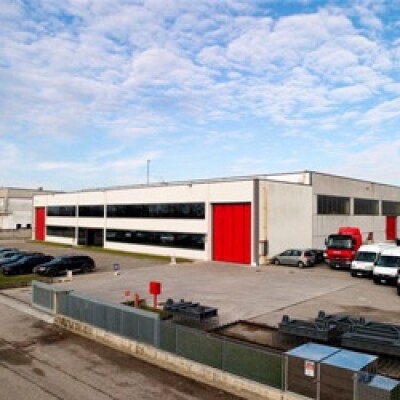
Phone. +39 049 5952052
Visit the website
Uniconfort
Experience and professionalism are the benefits we offer to our Customers
Uniconfort has been working for 50 years in the sector of advanced thermotechnics and technologies for the energy conversion of biomass from agricultural, woodworking, forestry and pellets.
Our fields of operation
• Design and construction of biomass boilers
• Production of biomass boilers for hot water, superheated water, steam, heating oil and air and hot gas generators.
• Turnkey biomass systems
• Turnkey biomass cogeneration systems
• Consulting for the receipt of Government Incentives (Green and White Certificates)
• Boilers compatible with various types of biomass (agricultural and forestry with high humidity content, inhomogeneous pieces and high level of ash)
• In-House R&D Center specializing in the study of conventional and non-conventional biomass combustion.
• Boiler thermal power from 93 to 14,000 kW.
Environmental sensitivity
...being attentive to the future
A renewable energy source
Biomass is a source of energy that is continuously renewable through the growth of trees, which accumulate carbon taken from the atmosphere using solar energy. Therefore, biomass is not a fuel destined to run out like fossil fuels.
Clean energy serving the environment
The Kyoto protocol requires reducing emissions by focusing on the development of renewable energy sources, of which biomass is one of the most promising. In fact, wood is a “CO2 - neutral” energy source because the amount of carbon dioxide released when it is burned is the same as the tree fixed through photosynthesis and it, therefore, returns to the atmosphere without altering the carbon cycle. In addition, biomass does not contribute to global warming.
Available and local... it is an energy source within easy reach
Unlike petroleum and gas, which are mostly imported from far-off producer countries, biomass is right under our feet, can be obtained locally and used on-site.
It is good for land maintenance
The abandonment of forests is a serious problem in many parts of the world. Neglecting forests produces an ecological imbalance in the forest system, increases the danger of fires, reduces the usability of the land, decreases its landscape value and increases hydrogeological risks.
The use of biomass as a fuel is an economical way to exploit materials produced from forest maintenance and, thus, stimulates a new type of forestry management inspired by principals of sustainability.
It creates employment
The use of biomass for energy creates new jobs and promotes local development. In this sector, agricultural and forestry businesses can find important opportunities for work and income, both in the fuel-supply chain and the management of the new power plants.
It does not just come from forests
Biomass does not just come from forests but can also be found in fields and cities. Biomass also comes from fields, shrubs, woodlands, short-rotation copses and urban landscaping. These are all sources that can provide significant quantities of woody fuels.
It has political value
The use of biomass means less dependence on imported oil and the countries that produce it, helps improve the foreign balance of payments, contributes to dealing with the problem of accumulated waste and stimulates the production of local income.




